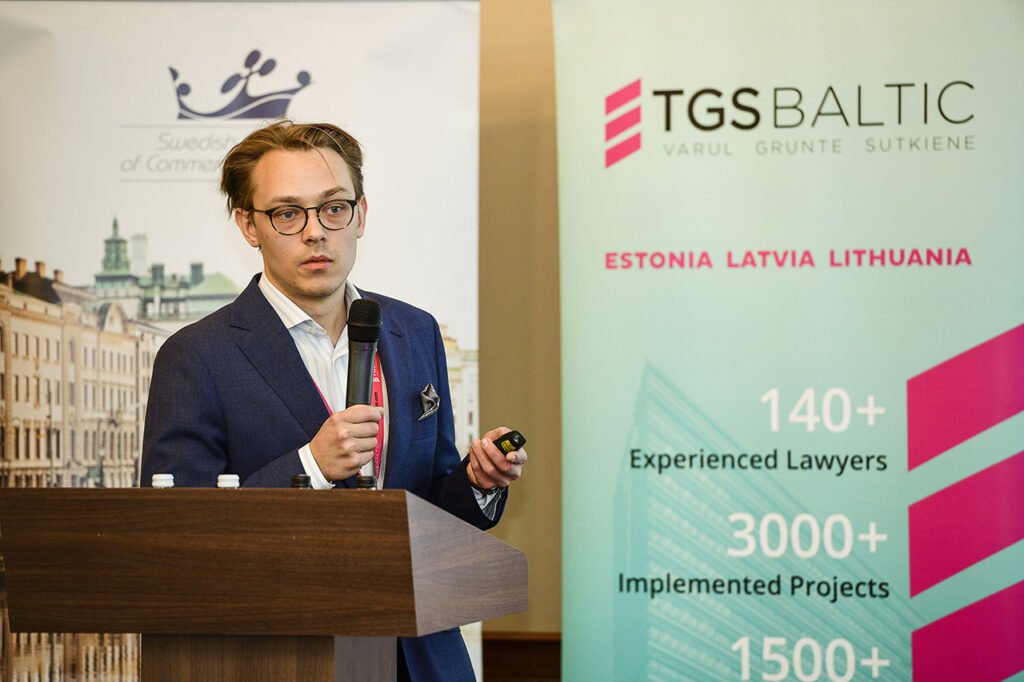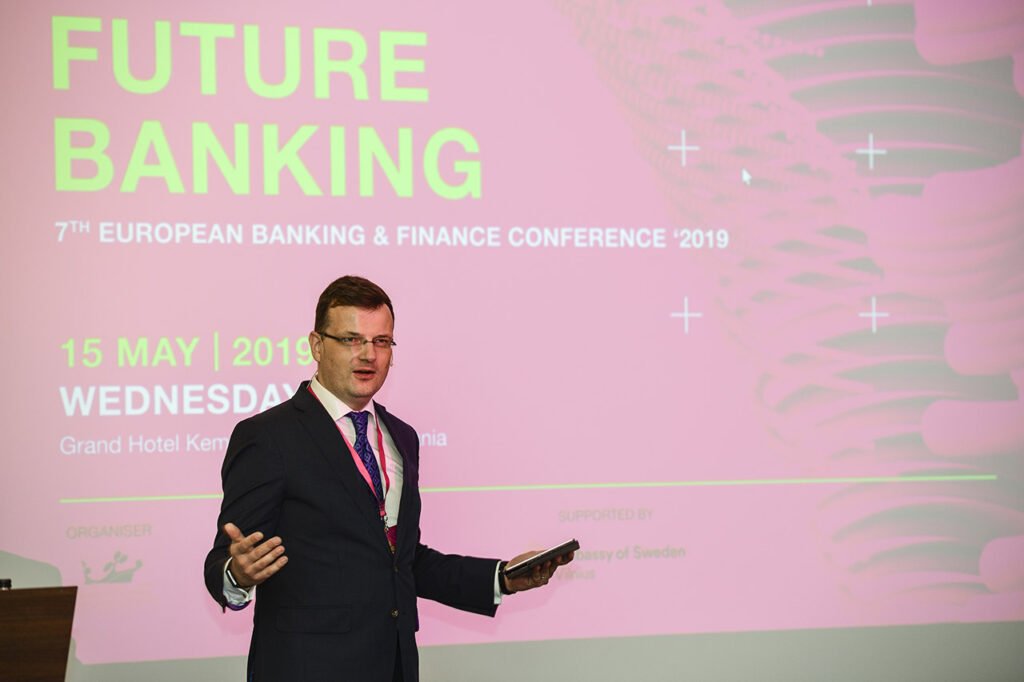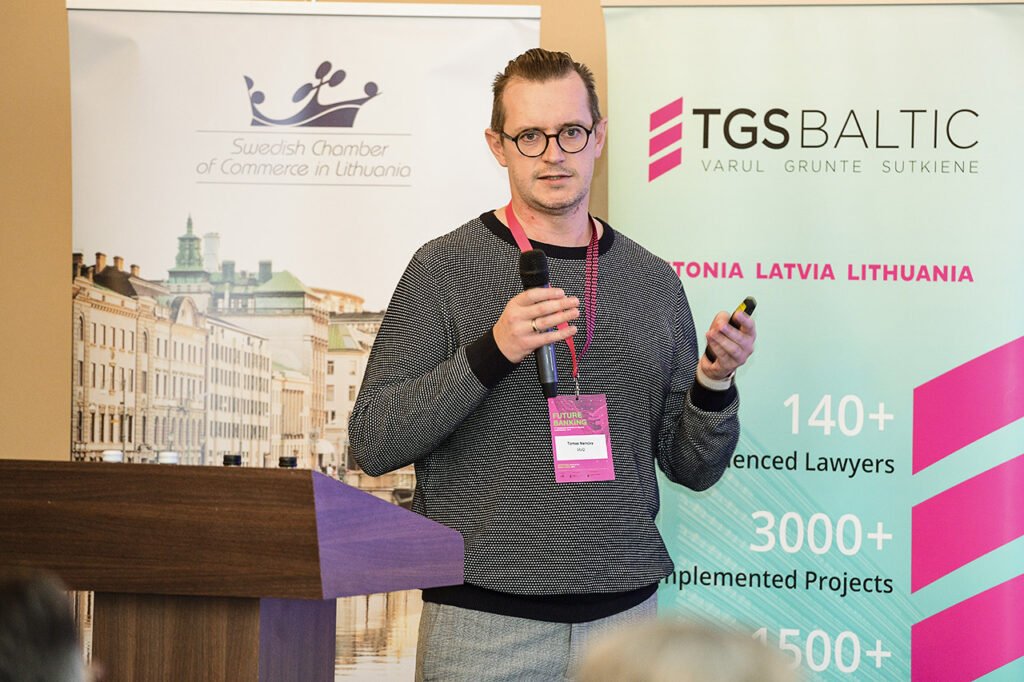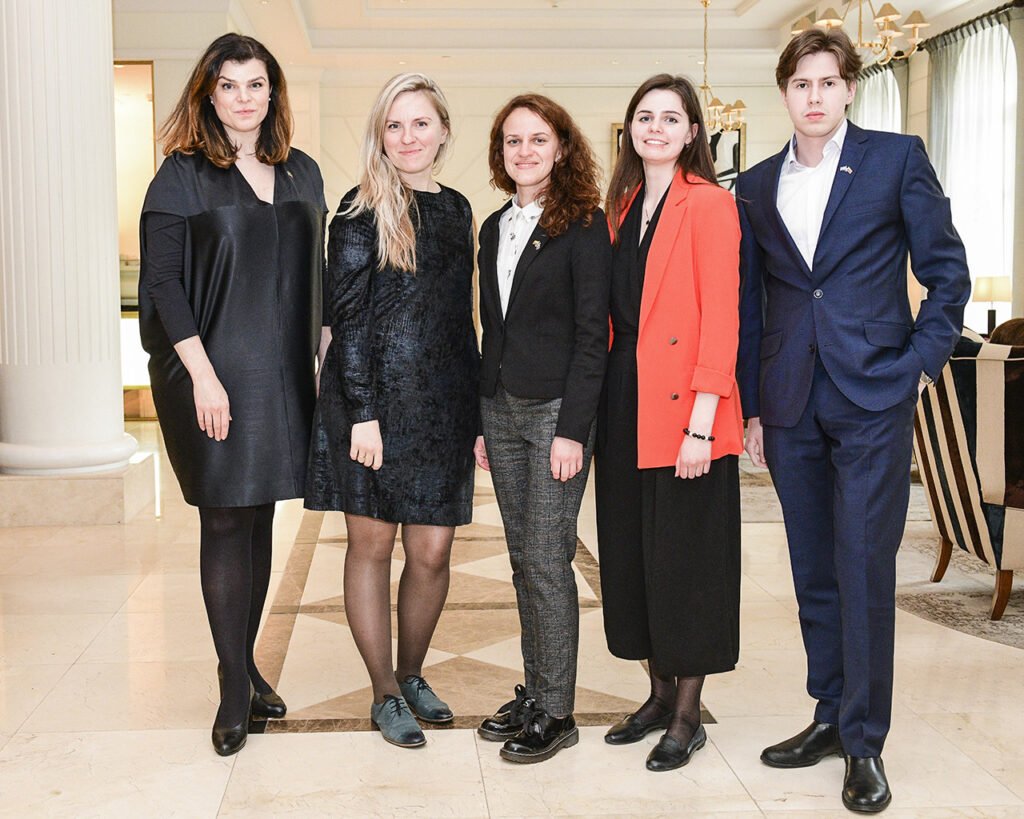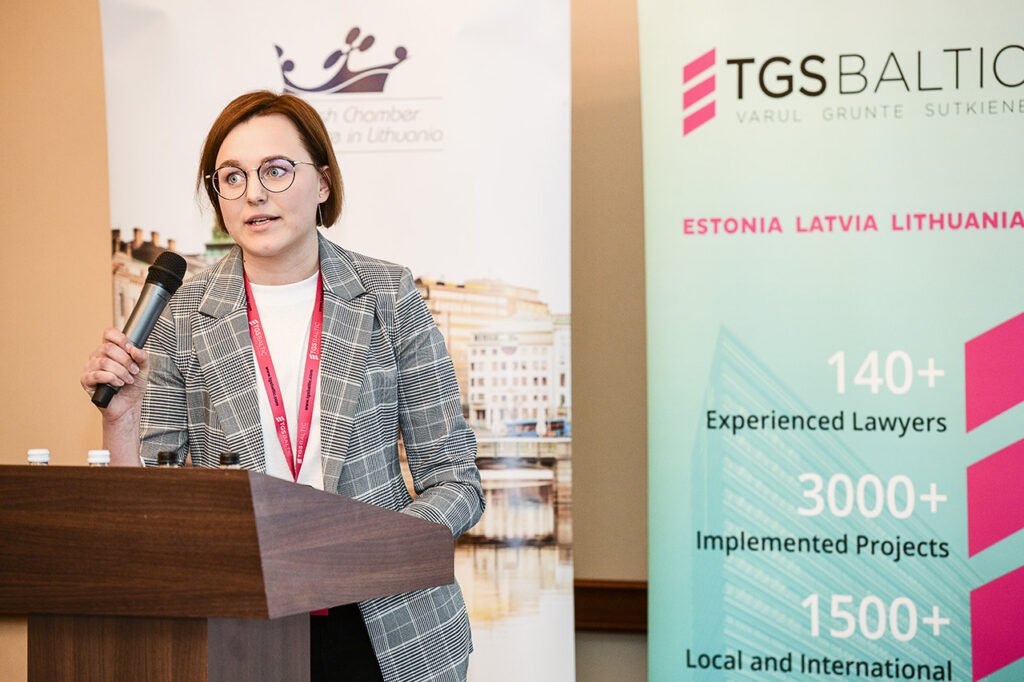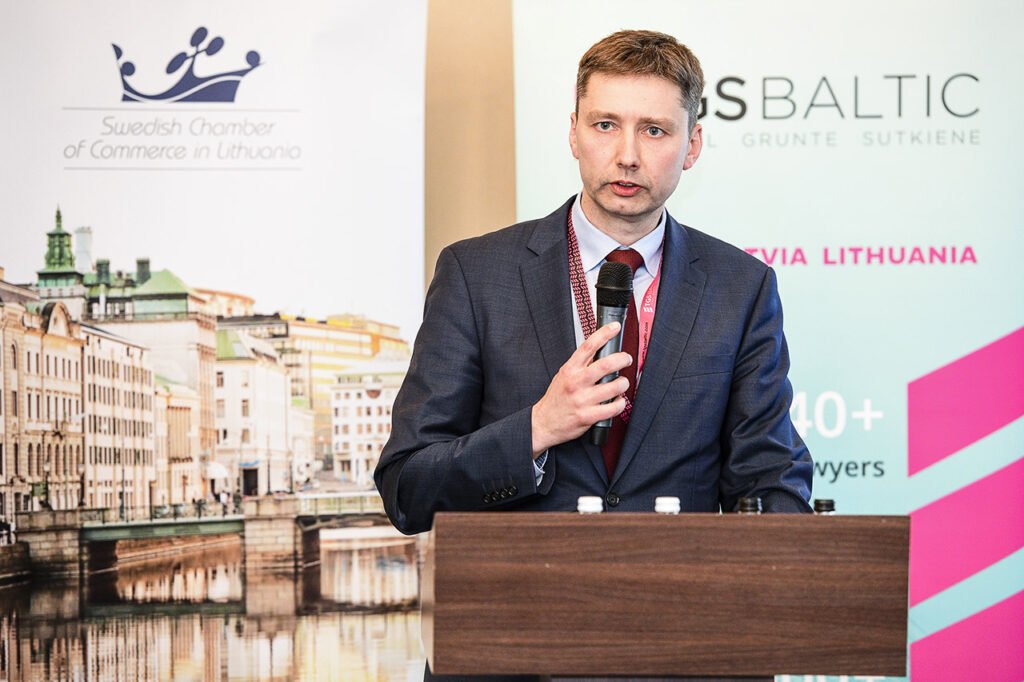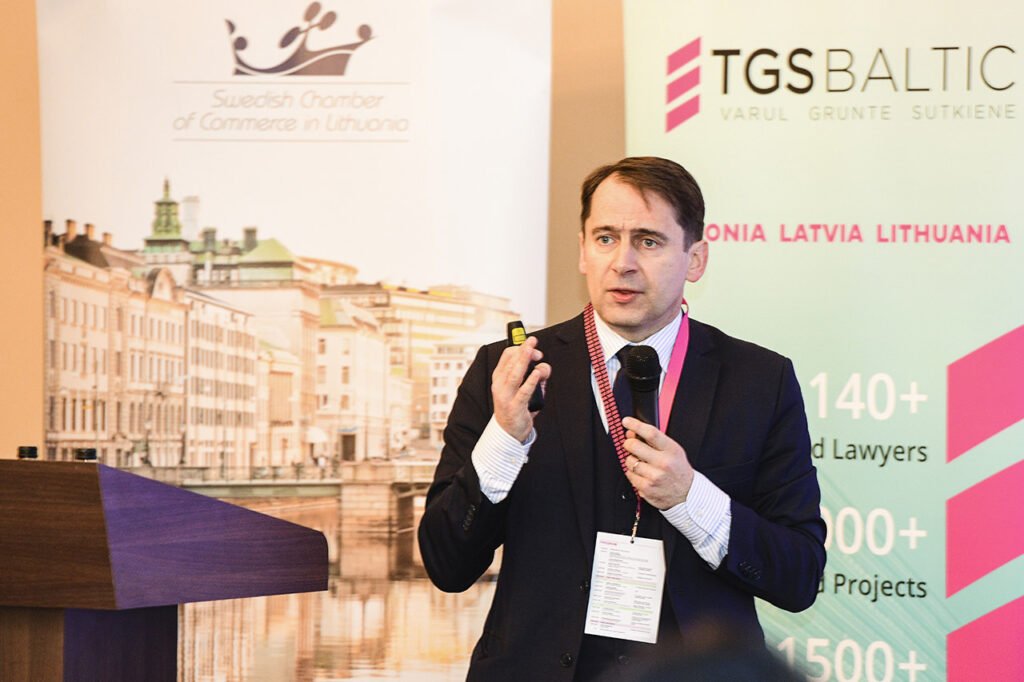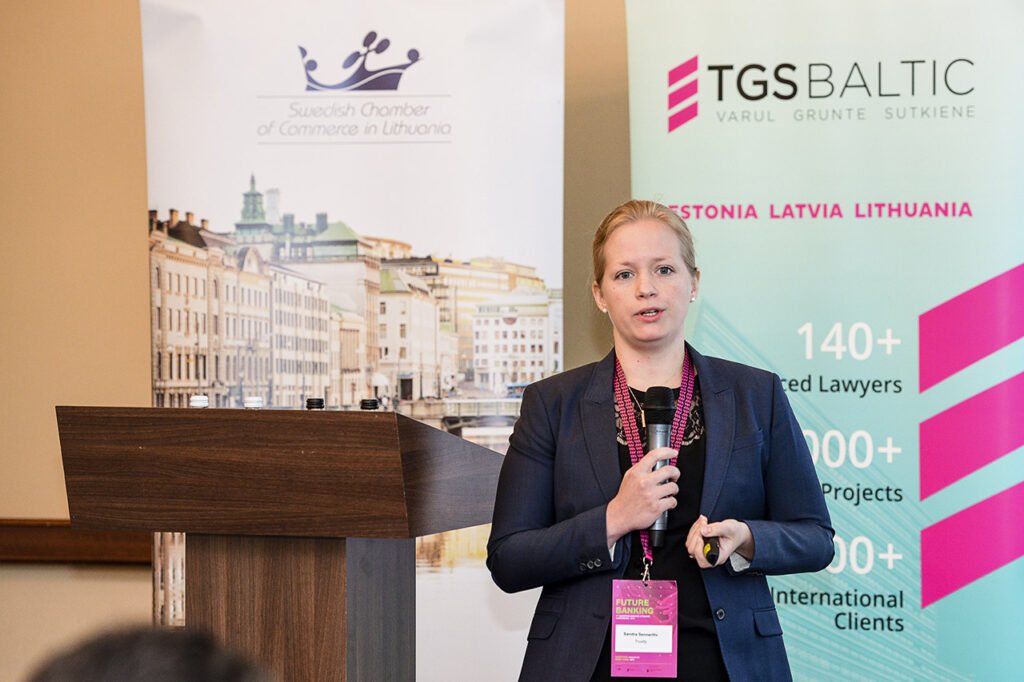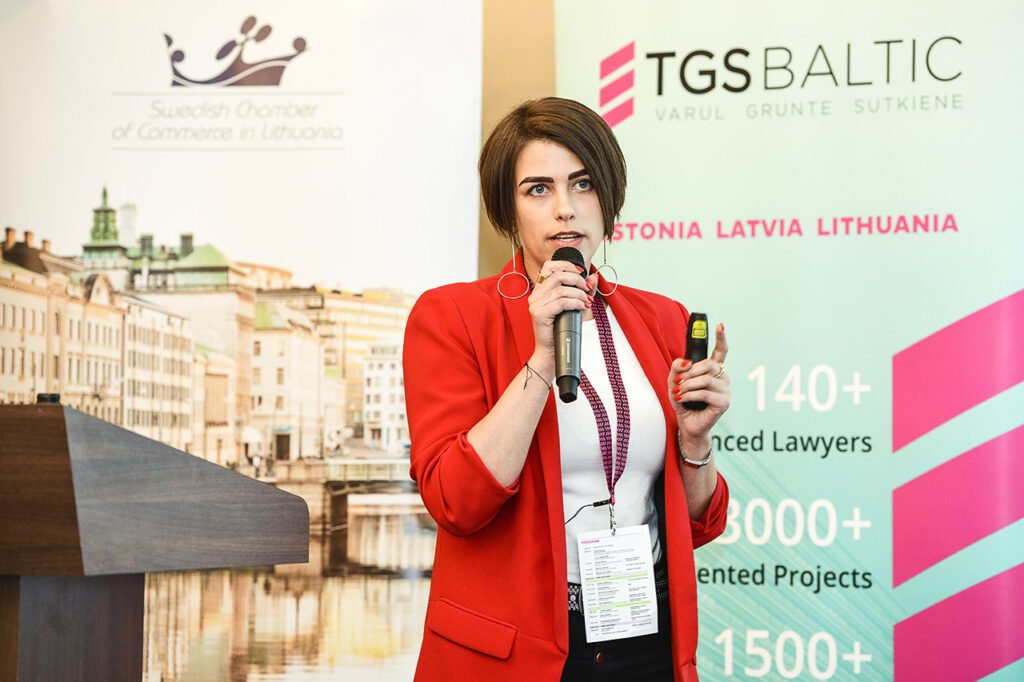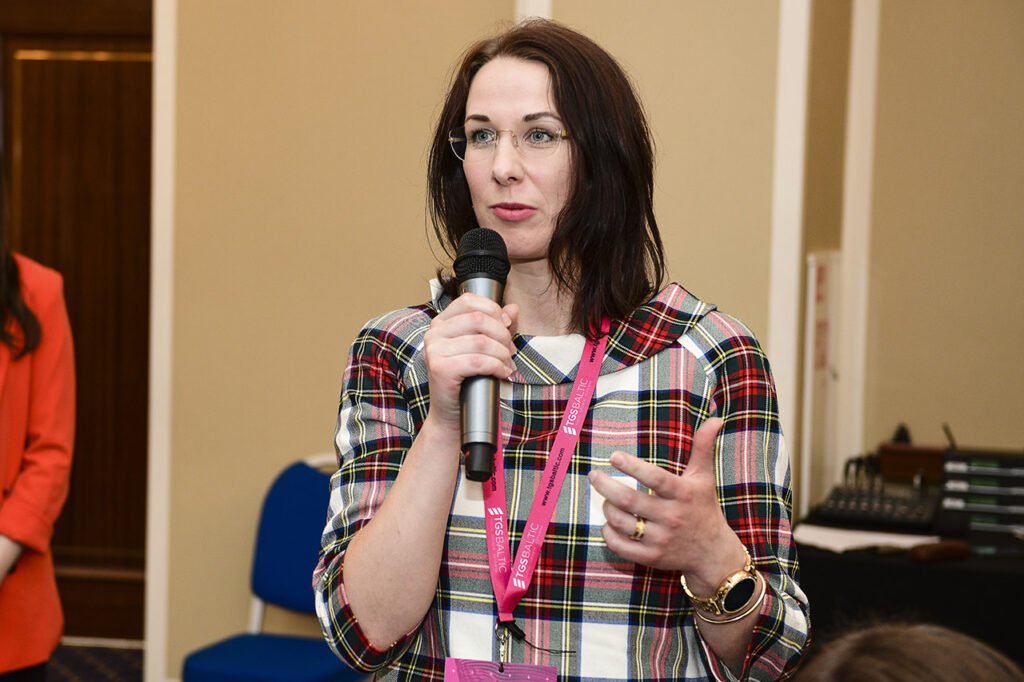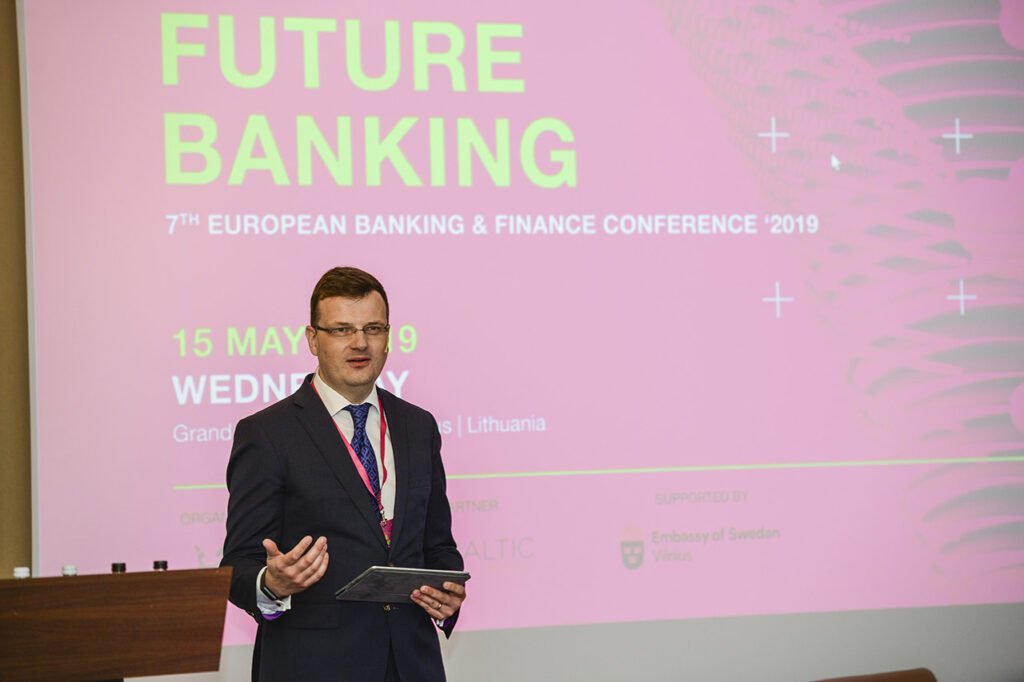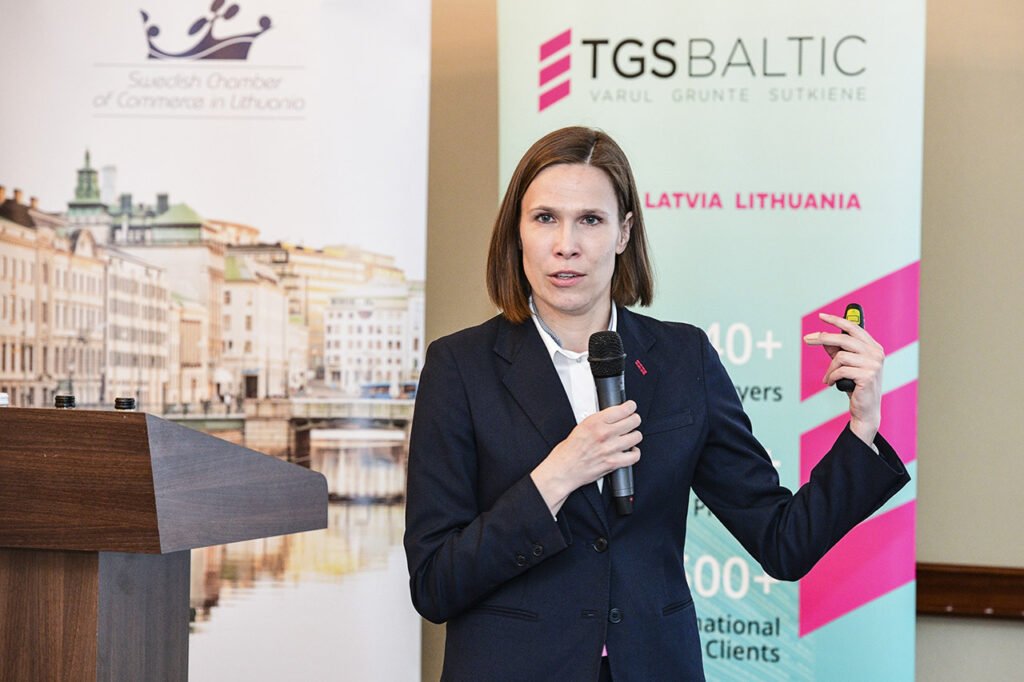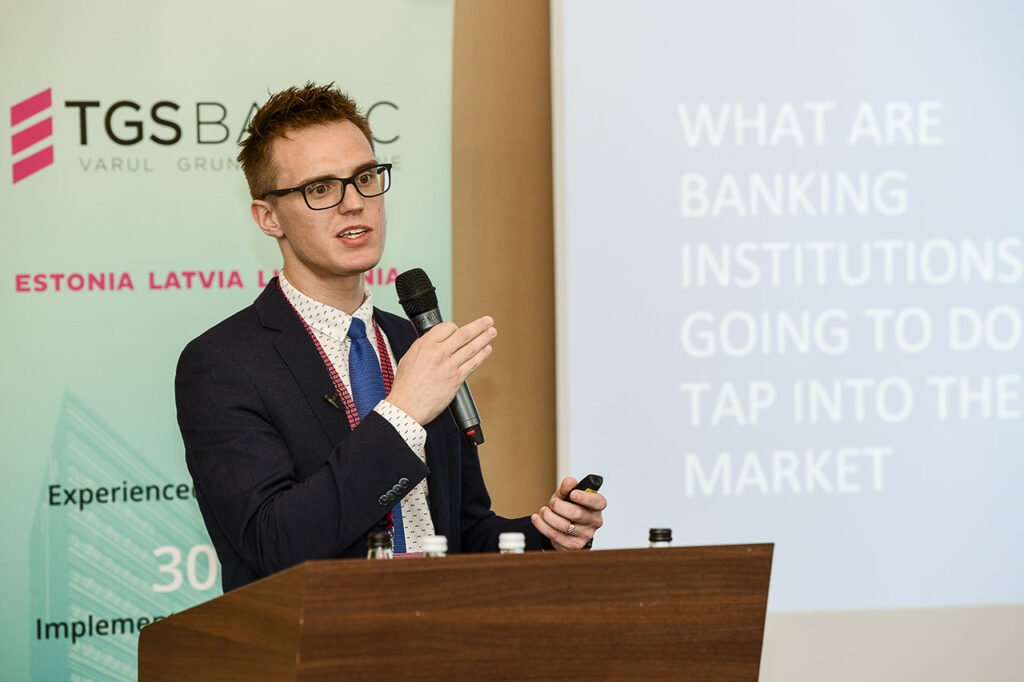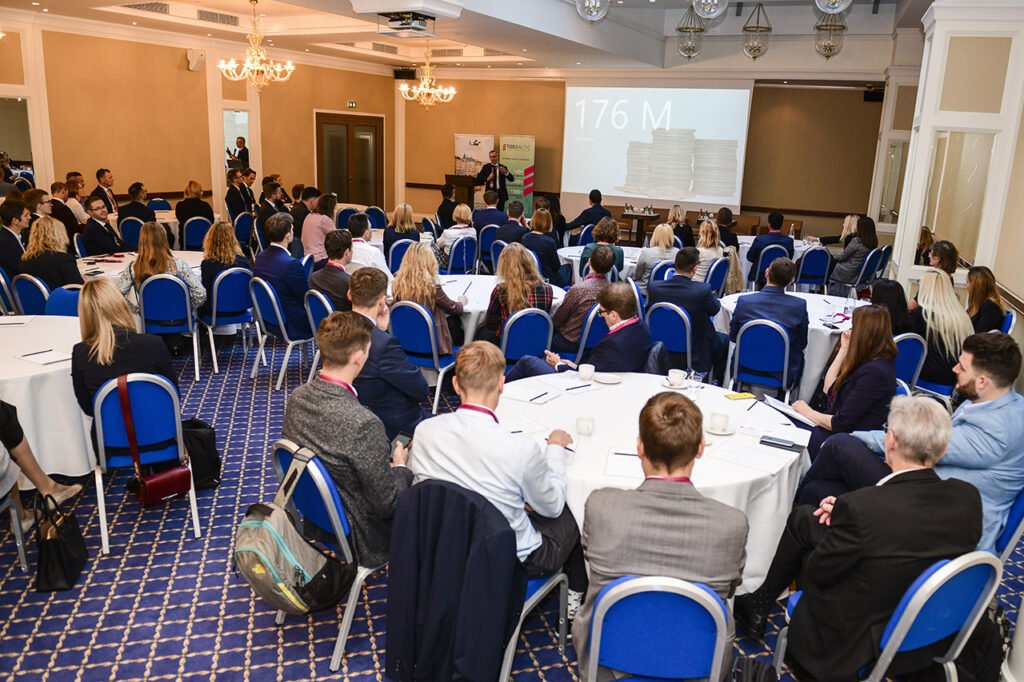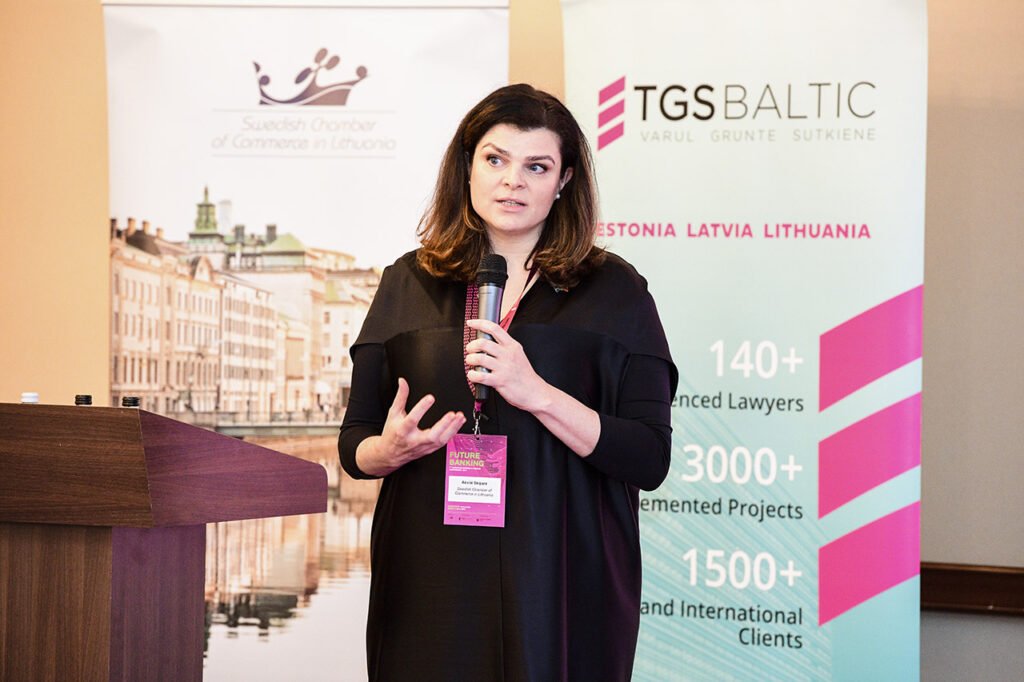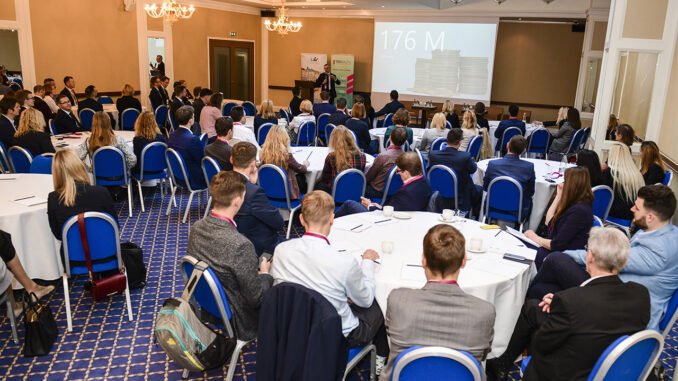
The Swedish Chamber of Commerce in Lithuania in partnership with law firm TGS Baltic and the Embassy of Sweden in Vilnius for the 6th time brought together about 100 banking and finance experts, regulators and supervisors, as well as business representatives on Wednesday 15 May.
It was stimulating analysis and discussion about the role of banks and how business clients and customer face the ever rapidly changes in the economic, legal and technological environment. Money laundering and cyber security where the big issues discussed in Kempinski Hotel at the conference organised by Swedish Chamber of Commerce.
Until recently the banking sector was probably seen by many as one of the more conservative pillars of the economy. Digital technological progress was embraced early on by the banking industry and pushed it into rethinking and redesign their modus operandi.
New challenges ahead
But new challenges by the so-called Neo Banks and various payment solutions like Revolut have pushed banks to closer cooperation-competition at unseen levels and sparking cooperation between banks, technology driven Fin-tech companies, various financial related technological start-ups, and the official banking institutions at country and EU levels, the regulators, and customers.
Akvilė Skiparė, Board Member of Swedish Chamber of Commerce in Lithuania and the Head of Financial Institutions and International Corporates at SEB delivered the opening remarks and introduced the moderator, Vilius Bernatonis, a Managing Partner at TGS Baltic.
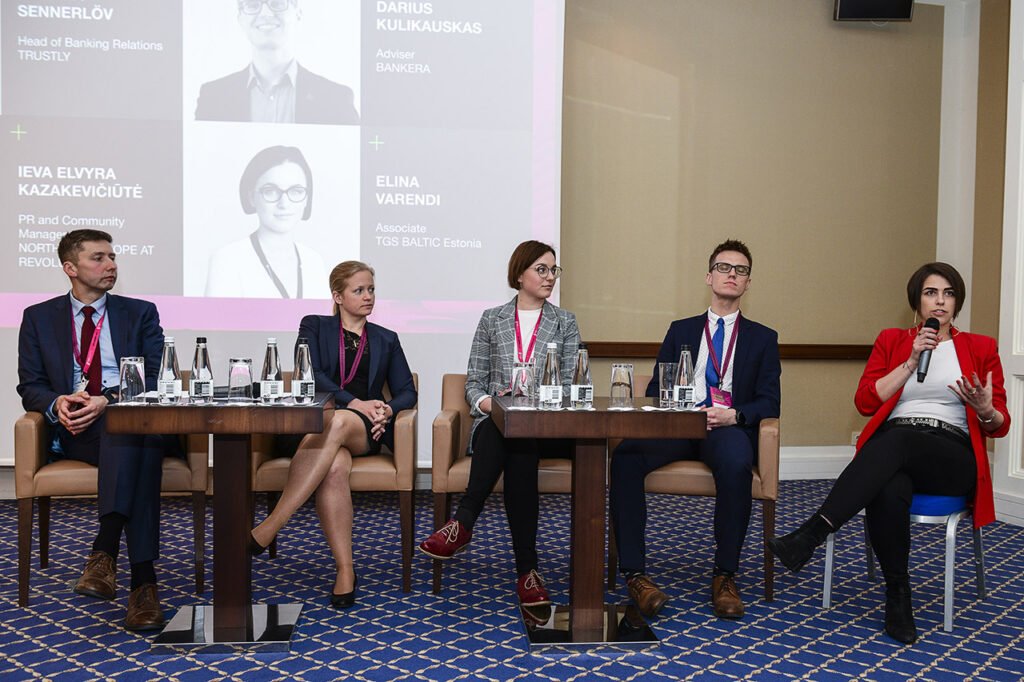
Sigitas Mitkus, Director of Financial Market Policy Department at the Ministry of Finance said that “Lithuania claims to be the leader in the Nordic Baltic region not only in the financial technology sector, but it also to strengthen its potential in cyber security and welfare management (WealthTech) technologies.”
Marius Jurgilas a board member at the Bank of Lithuania spoke about the challenges that Central bankers face in the future, in particular the cooperation between various official institutions and the role of the Central Bank. Mr Jurgilas expects Central Banks issuing digital currency in the near future. He added that, “On the subject of money laundering is as big and issue for banks as child abuse is that for the church’.
Adopting to change key to survival
The Head of Banking at Trustly, Sandra Sennerlöv spoke about what society can expect in terms of the next generation of payments. Adapting to change is the key to survival. The ephemeral approach in marketing-driven financial products was addressed by Tomas Nemūra, Chief Marketing Officer at MoQ. He described the younger generation as addicted to one or two clicks with “Very short expiration date, avoiding human contact at all costs, extremely short attention span”. Nevertheless they are an important segment of the client oriented approach in the banking business.
Revolut‘s Ieva Elvyra Kazakevičiūtė, the PR and Community Manager for Northern Europe lifted a bit the veil on fintech’s vision of global mobile banking. She sketched the growth at Internet speed getting one million users without advertising, waking up the large banks to the threat of agile fintech companies. Now they start facing the challenges of any larger integrated financial institution, money laundering included.
Darius Kulikauskas an adviser at Bankera gave a peek about what goes on behind the consumer-centric facade. Gimmicks making a payment do not enhance efficiency or market imperfections. The App bling will wear off, particularly when banking needs go beyond payment facility and scaling issues show up.
A few words about sustainability
Vytenis Šimkus a Senior Economist at Swedbank, looked at the sustainability of the current business cycle and saw little overheating except for rapid salary growth (Lithuania has faster wage growth than Latvia and Estonia) exceeding productivity levels. Nevertheless throwing in a word of caution whilst reminding the audience of former US Fed Chair, Janet Yellen’s ”Business cycles rarely die of old age”. Trade is an important factor within the EU and Brexit remains a red flag issue.
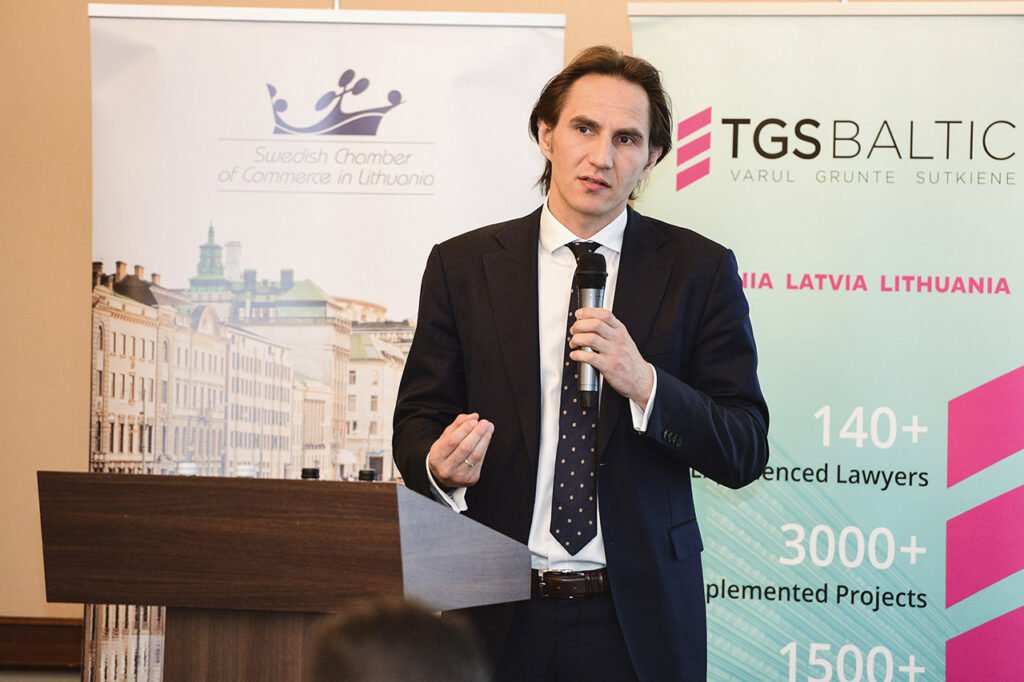
Elina Varendi and associate at TGS Baltic in Estonia hit on the hot subject of money laundering investigations and in particular the lurking dangers in the local fintech market
Žygimantas Stankevičius another partner of TGS Baltic, offered some concrete solutions to that money laundering problem by proposing a number of prevention techniques. There is no tolerance for AML violations in Lithuania and last year 1.4 million Euro in fines were applied. At various official levels the regulators and banks are also hiring lots of compliance specialists.
The afternoon presentations at the conference organised by the Swedish Chamber of Commerce ended with a presentation addressing decision making process neurologist Urtė Neniškytė.

Vytenis Šimkus, Senior Economist, Swedbank Photo © Ludo Segers @ The Lithuania Tribune 
Vilius Bernatonis, a Managing Partner at TGS Baltic, Photo © Ludo Segers @ The Lithuania Tribune 
Tom Nemura, Head of Marketing at MoQ Photo © Ludo Segers @ The Lithuania Tribune 
The organisers of the Conference on the future of banking Photo © Ludo Segers @ The Lithuania Tribune 
TGS Baltic attorneys Elina Varendi Photo © Ludo Segers @ The Lithuania Tribune 
TGS Baltic attorney Žygimantas Stankevičius Photo © Ludo Segers @ The Lithuania Tribune 
Sigitas Mitkus, Head of the Financial Markets Policy Department of the Ministry of Finance Photo © Ludo Segers @ The Lithuania Tribune 
Sandra Sennerlov of Trustly Photo © Ludo Segers @ The Lithuania Tribune 
Revolut spokesman Ieva Elvyra Kazakevičiūtė Photo © Ludo Segers @ The Lithuania Tribune 
Ramunė Šabanienė addressing the panel discussion after the first part of the Forum Photo © Ludo Segers @ The Lithuania Tribune 
Panel discussion with FLTR Žygimantas Stankevičius, Sandra Sennerlöv, Elina Varendi, Darius Kulikauskas, Ieva Elvyra Kaza Photo © Ludo Segers @ The Lithuania Tribune 
Moderator Vilius Bernatonis, a Managing Partner at TGS Baltic Photo © Ludo Segers @ The Lithuania Tribune 
Neurologist Urtė Neniškytė Photo © Ludo Segers @ The Lithuania Tribune 
Mantas Zalatorius, President of the Lithuanian Banking Association Photo © Ludo Segers @ The Lithuania Tribune 
Bakera consultant Darius Kulikauskas speaking at The Swedish Chamber of Commerce in Lithuania Future of Banking Photo © Ludo Segers @ The Lithuania Tribune 
Attentive audience at the Future of Bank and Finance Photo © Ludo Segers @ The Lithuania Tribune 
Akvilė Skiparė, Chairman of the Board of the Swedish Chamber of Commerce Photo © Ludo Segers @ The Lithuania Tribune

